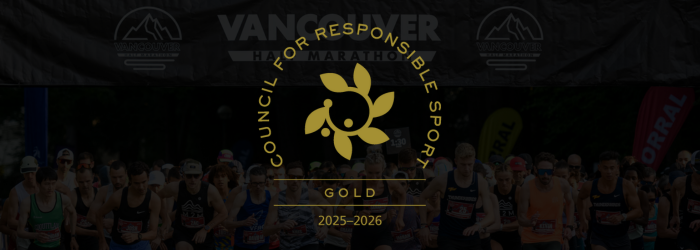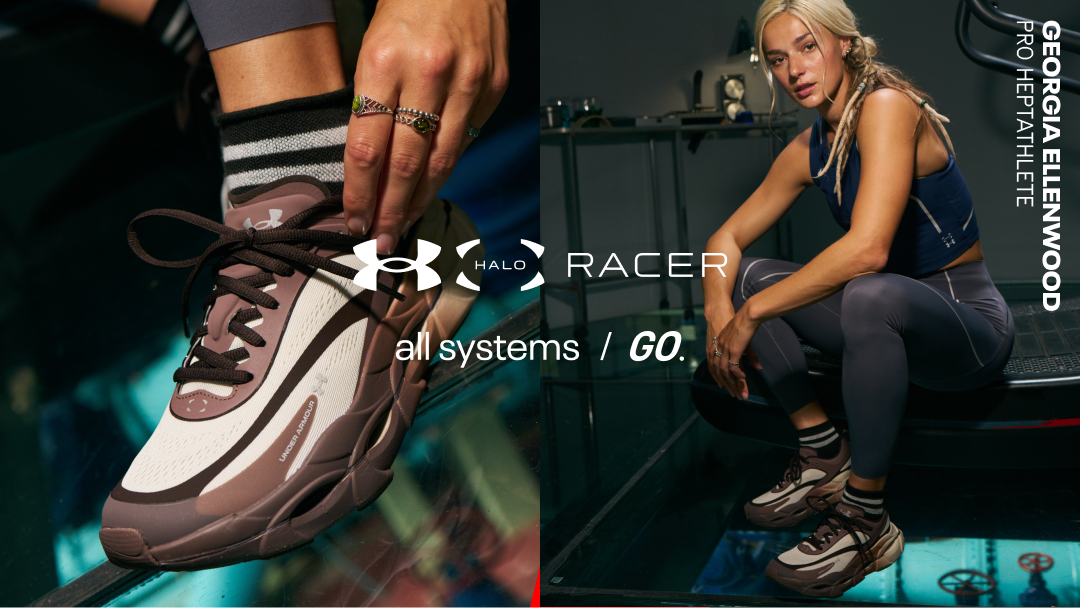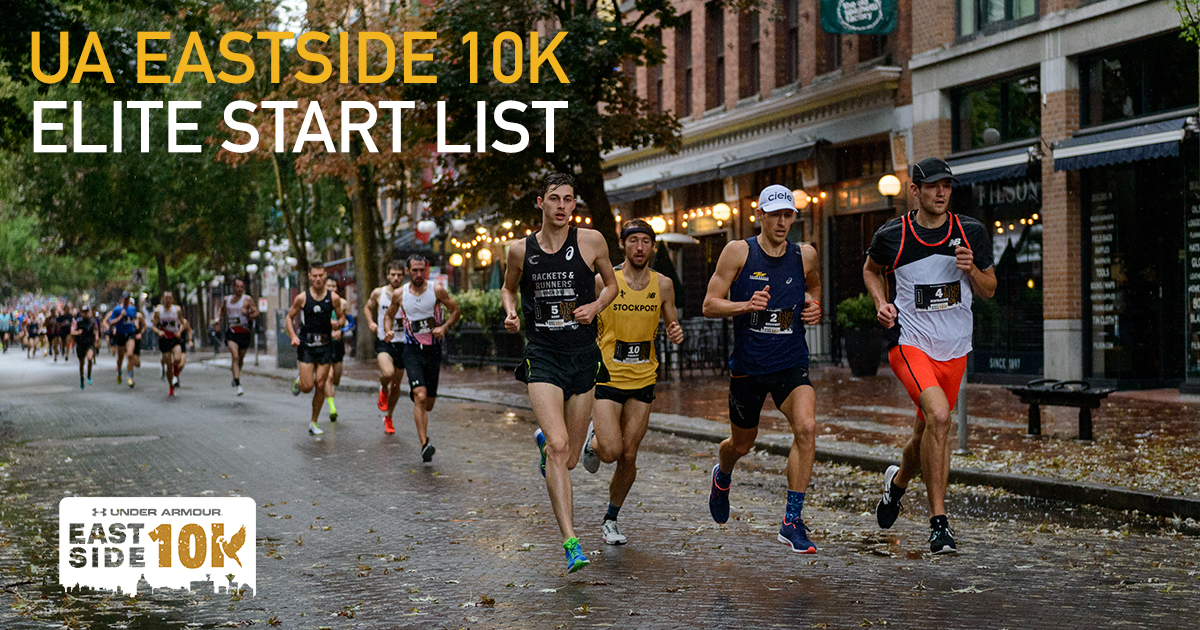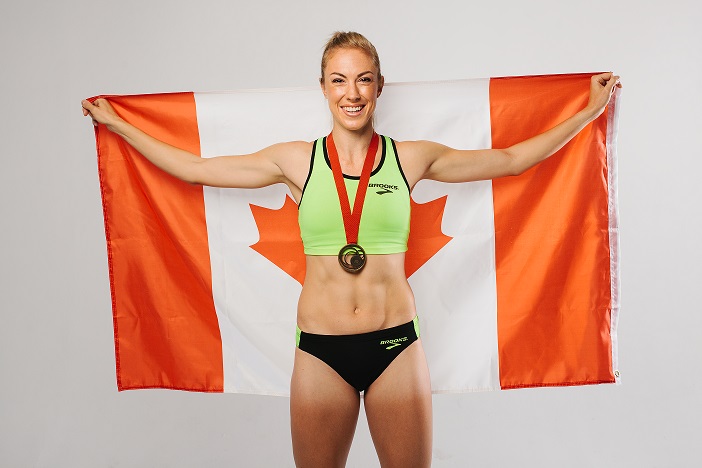
TORONTO September 26th, 2016 – By Kate Van Buskirk
It’s a hard reality to face, but setbacks are inherent in every runner’s athletic career. Injury, illness, burnout, and life frustrations that get between our soles and the pavement—we all experience these at one point or another. Of course, we take precautions to limit their likelihood: we follow a sound training plan, fuel our bodies well, stretch and recover, and carefully carve out time for runs in otherwise busy days. And yet, despite our best efforts to prevent them, obstacles inevitably find their way into our training and race prep. Sometimes these are short-lived and have little impact on our chances for success. A missed workout here or there likely won’t do much to get in the way of your race day goals. Shin splints that develop into a stress fracture, on the other hand, can set you out for weeks.
Like every runner, I have had my share of setbacks. Last fall, less than a year out from this summer’s Olympic Games, I was diagnosed with an autoimmune disease that causes major inflammation in my joints and leads to severe, chronic pain. In spite of great preparation and planning going into this year, the 2016 season was a patchwork of inconsistent training, symptom management, and ultimately, disappointment. I had to not only try to understand this diagnosis and find a way to reduce my pain and discomfort, but also slowly accept the reality that I wasn’t going to make the Olympic team. It was devastating, and made me question my future and identity as a runner.
We can all relate to this in some way: regardless of the particular set of circumstances, we all feel heavy hearted when our training and preparation get interrupted and we have to reassess or redefine our goals. Whether you’re trying to complete your first 5km, qualify for Boston, or represent your country at the Olympics, you’ve made a commitment to an endeavour that can bring tremendous pride and satisfaction, but also deep frustration when things don’t go as planned.
So how do we manage these various challenges and optimize our chances for success? In my experience as an athlete and coach, I have learned that controlling the controllables, seeking out good resources, and finding opportunity in adversity are great places to start!
Control the controllables:
In any situation, there are factors that are within our control, and those that are not. Investing our time and energy in doing all the little things right to prevent and manage adversity is the best way to set ourselves up for success. Conversely, worrying about things that are beyond our control will only augment frustrations and cause stress and anxiety that could actually compound the problem. Find a sound training program, set clear but flexible goals, eat well, sleep and recover as much as possible, replace your shoes regularly, listen to your body when it tells you that you’re pushing too hard, practice positive visualization, and put a good race day plan in place. Take charge of the things that you know you need to do for yourself and regardless of the outcome, take pride in knowing that you set yourself up with the best chances for success and satisfaction.
Equip yourself with good resources:
Part of controlling the controllables involves arming yourself with good information and resources, as preventative measures and when adversity strikes. Learn as much as you can about the hurdle you’re facing, how it happened, and how you can reduce the negative implications. Seek out knowledgeable, experienced professionals who can advise you well and empower you to get and stay healthy, strong, and race-ready.
View setbacks as opportunity:
There’s a wonderful quote by Canadian Olympic rower Silken Laumann written on the wall of the Pacific Institute for Sport Excellence in Victoria that reads:
“There are gifts in adversity. Behind every challenge there is remarkable opportunity.”
I read this quote every time I was at the Institute. At first I considered it cheesy and overly optimistic: how could I possibly see “remarkable opportunity” in my situation when all I was feeling was frustrated, disappointed and in pain? Over the last year, however, I’ve learned that injury is not only inevitable, but it also forces you to learn an incredible amount about your body and mind, their deficiencies and strengths, and how to work on both. I missed out on the Olympics this year, and that was so tough. But I am completely confident that I will go into training for the 2020 Games stronger, wiser, and with greater chances for success thanks to the adversity I faced and the wealth of information I’ve gained as a result.
As we venture into the fall racing season, I encourage you to keep these things in mind, and as always, RUN HAPPY!
About Kate Van Buskirk: Kate is a professional track and road runner representing Brooks Canada, who specializes in the 1500m. She is a 2-time National Champion, an 8-time National Team member, and a Commonwealth Games bronze medalist. She is a Duke University alumnus where she studied cultural anthropology. She currently lives and trains in Toronto where she works as a coach with Pace and Mind and Myodetox Performance. Connect with Kate on Twitter and Instagram.


